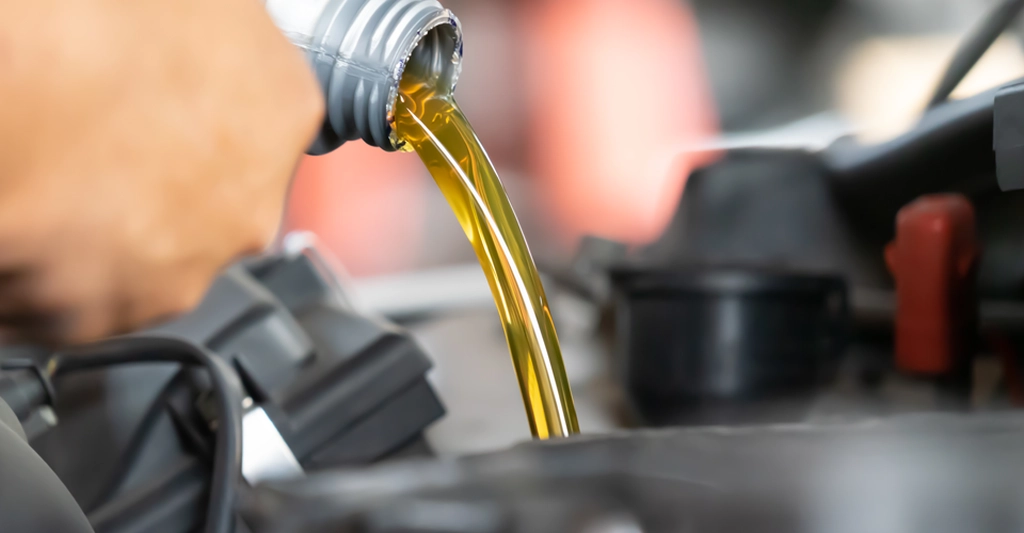Your car’s engine is a finely tuned machine, and engine oil is what keeps all its moving parts running smoothly. Think of it as the lifeblood of your vehicle. Whether you’re driving in cold climates or hot desert roads, the right motor oil plays a crucial role in keeping your engine clean, cool, and protected.
In this guide, we’ll break down the different types of engine oil, when to change it, what the labels mean, and how to choose the best one for your car.
Why Engine Oil Matters
Engine oil lubricates the engine’s components, reducing friction and preventing wear. It also helps cool the engine by carrying heat away from moving parts, traps dirt and metal particles, and prevents the formation of sludge. Without proper oil or regular changes, engines can overheat or suffer costly damage.
If your oil warning light comes on, if you notice a burning smell, or if the engine feels rough even before your next scheduled service get the oil checked immediately.
Types of Engine Oil Explained
There are three main types of motor oil available:
1. Conventional Oil
Made directly from refined crude oil, conventional oil has been around for decades. It provides basic engine protection and is typically more affordable. However, it breaks down faster under high temperatures and often lacks modern detergents, which help prevent sludge buildup.
Best for: Older vehicles or low-mileage engines that aren’t driven under severe conditions.
2. Synthetic Oil
Unlike conventional oil, synthetic motor oil is engineered in laboratories. It offers superior performance, better thermal stability, and a cleaner engine. It also lasts longer between oil changes and may even improve petrol usage slightly due to reduced engine friction.
Best for: Modern engines, high-performance vehicles, extreme climates, and drivers who want long-term protection.
3. Synthetic Blend Oil
As the name suggests, this is a mix of conventional and synthetic oils. It gives you some of the benefits of synthetic oil like better resistance to oxidation and heat at a more affordable price.
Best for: Budget-conscious drivers who still want improved performance and protection.
Understanding Oil Viscosity
You’ve probably seen labels like 5W-30 or 10W-40 on oil containers. This represents the oil’s viscosity, or thickness:
- The first number with a “W” (which stands for winter) indicates how the oil flows at cold temperatures.
- The second number shows how it performs at high temperatures.
Thinner oils flow more easily in cold weather, while thicker oils provide better protection at higher temperatures. Always follow your manufacturer’s recommended oil grade to avoid engine issues.
How Often Should You Change Engine Oil?
Most modern vehicles can go 8,000–15,000 km between oil changes, especially with synthetic oils. However, the right interval depends on:
- Your vehicle makes and model
- The type of oil you use
- Your driving conditions (city traffic, heavy loads, dusty roads, or off-roading)
Check your owner’s manual for specific recommendations, and consider changing oil sooner in extreme climates or heavy usage scenarios.
How to Choose a Quality Engine Oil
When shopping for oil, look beyond the price tag. Here’s what to look for:
- API Donut: Indicates the oil meets the standards of the American Petroleum Institute.
- SAE Rating: Confirms it meets the Society of Automotive Engineers’ viscosity standards.
- ILSAC Starburst: Means the oil complies with modern emission and fuel efficiency standards.
Stick with reputable brands like Mobil 1, Castrol, Valvoline, or Shell. Avoid unfamiliar ultra-budget brands, especially if you’re unsure about their certifications.
Practical Tips for Car Owners
- Check oil levels regularly using the dipstick and top up if needed.
- Don’t mix oil types unless it’s an emergency. If you must, make sure it’s a compatible blend.
- Dispose of used oil properly never pour it down a drain. Many auto parts shops and service centers offer oil recycling.
- Watch for changes in oil colour or consistency dark, sludgy oil can signal the need for an earlier change.
Final Thoughts
Using the right engine oil and changing it on time can extend your engine’s life, improve petrol usage, and save you from expensive repairs down the road. Whether you go with conventional, synthetic, or a blend, always stick to your manufacturer’s recommendation and choose a certified product.
Need an oil change, filter replacement, or engine health check? Book your service with MotorHub today. We offer expert care for all car brands, including premium oil servicing tailored for the UAE’s unique driving conditions.



